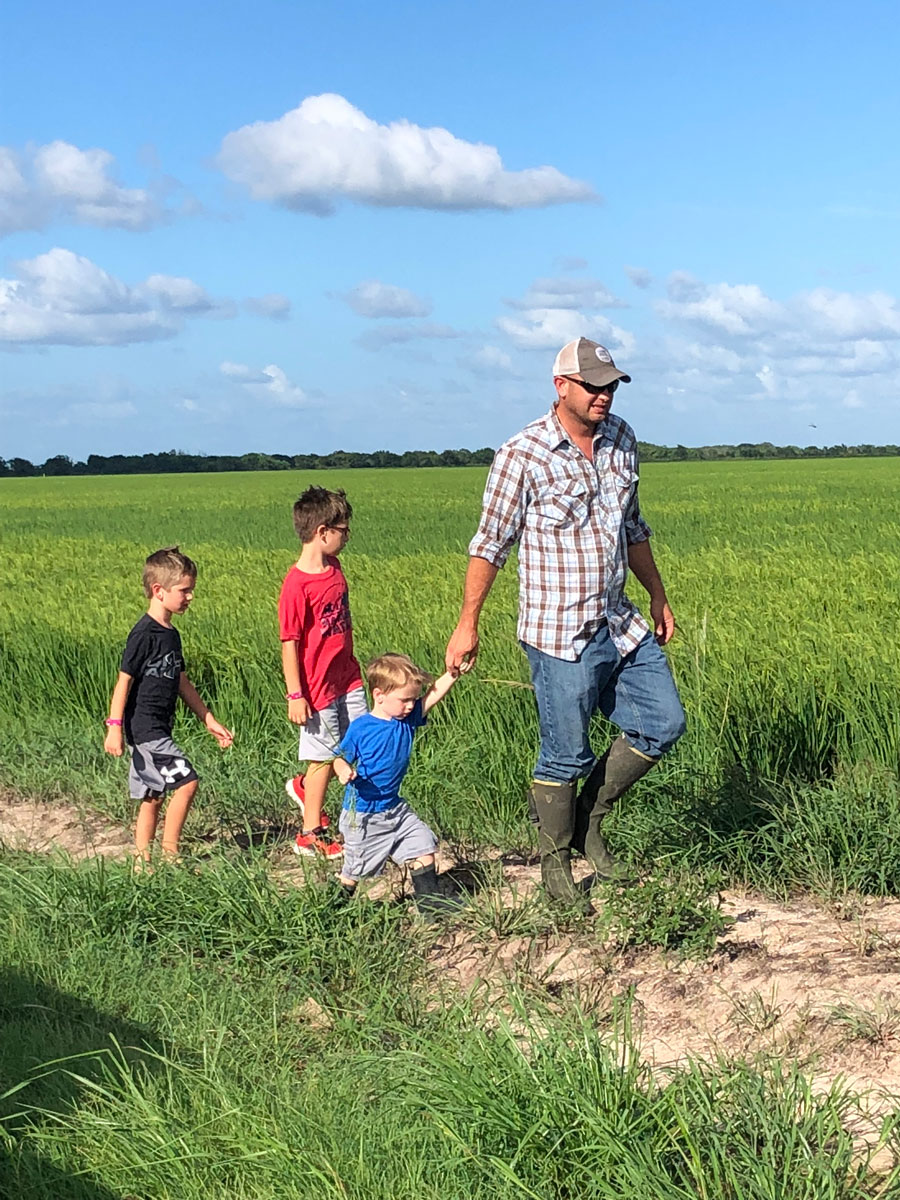 Following in dad's footsteps
Following in dad's footsteps
Oct 09, 2019
LISSIE, TX -- When Tim Gertson isn’t out in the fields, you might find him hunkered down in his office, which he describes as “a mad scientist’s lair, with jumper wires all over the place.” These days, Tim is working on a prototype for a wireless water-level monitor and control system for the rice fields on his approximately 1,000 acre farm here. “My goal is to have a rice field irrigate itself autonomously,” he says excitedly. “It’s lofty – but my big push is to find new ways to use technology to make myself more sustainable.”
Tim and his cousin, Daniel, just harvested their tenth year on G5 Farms, named because they are the fifth generation of farmers in the family. Just down the road, Tim’s dad, three uncles, and grandpa still work the farm where he grew up. On G5 Farms, where Tim focuses on rice but has grown everything from organic corn to wheat, the goal to use technology to become more sustainable is already well underway.
Tim has leveled and installed permanent irrigation control structures on over 600 acres, and has installed more than four miles of irrigation pipeline to create a water-on-demand irrigation system. These improvements, funded by USDA’s Environmental Quality Incentive Program (EQIP), have resulted in a 20 percent reduction of his annual water use. Tim hopes that retrofitting the existing structures with his new in-field irrigation automation will result in further reductions.
“It wouldn’t be sustainable to redo my own work,” says Tim. “It’s about retrofitting to use what I’ve already got to make everything more affordable. If I’m going to save any more water, the only way I can do that is through better management in the structures and fields I already have. Once you have good technology in place, the next step is trying to take human error out of the decisions.”
To help him improve those management decisions, Tim has been using Field to Market’s Fieldprint Platform for four years, and says going through the Platform’s analysis has helped him feel accountable for protecting natural resources that may not be front-and-center to a Texas rice farmer, like soil erosion. “Just the fact I have to answer those questions has made me conscious of the soil issues I face on my farm, and led me to minimize erosion to the extent I can,” says Tim. “It’s a reminder that you can’t ever just check the box off that says ‘I’m a great farmer.’”
Tim hopes to pass on this spirit of curiosity and hard work, which he says he learned from his dad, to his three young boys. “They love being on the farm with me – they’re mostly into tractor riding right now – but one of the most important things I plan to pass on is the idea you always need to be improving,” says Tim. “I look at sustainability as continual improvement, not a goal that can be met. It’s something you’re working towards, not arriving at.”